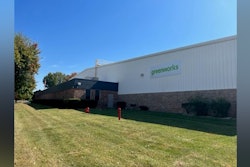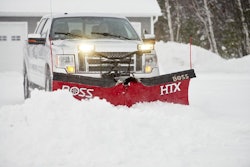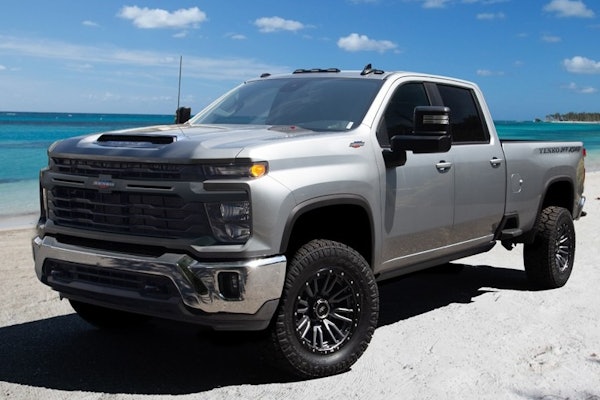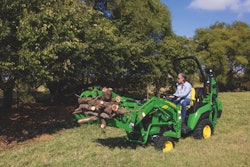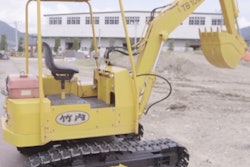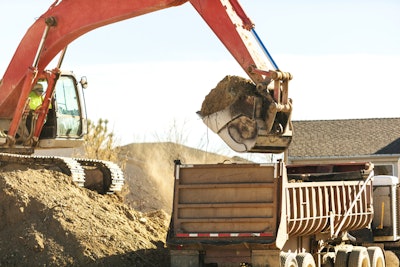
Using Bonus Depreciation to pay less in taxes has been a popular annual strategy for many companies, especially those who buy big-ticket items like heavy equipment and machinery. For the past few years, bonus depreciation was a robust 100% of an item’s purchase price. However, it is being phased out, beginning in 2023.
For many construction companies, this may affect how and when they purchase equipment. Read on t0 learn more about bonus depreciation, how it differs from Section 179, and finally, how this phase-out will impact your company (and what you can do about it).
What is Bonus Depreciation?
The U.S. tax code has allowed bonus depreciation for 20-plus years. It is an accelerated depreciation schedule and allows companies to depreciate or “write off” part or all of the purchase price of most types of new or used equipment in the year it was purchased.
Bonus depreciation is usually thought of as being part of Section 179 (as they are often discussed together). But it is separate and very much its own thing.
After years of allowing a 50% purchase-year depreciation, 2017’s Tax Cut and Jobs Act raised bonus depreciation to 100%, and it has been there since. But it is now getting phased out: for 2023, 80% of the purchase price can be depreciated immediately, 60% in 2024, 40% in 2025, 20% in 2026, after which the program ends.
How are Bonus Depreciation and Section 179 Different?
Bonus depreciation and Section 179 both lower the taxes businesses pay by accelerating an item’s depreciation to the current year. But there are several differences:
Spending and Deduction Limits
Section 179 limits the total depreciation/write-off dollar amount ($1,160,000 in 2023) and limits the amount a business can spend on equipment before the deduction begins to disappear (total spend = $2,890,000 in 2023).
There are no upper limits on bonus depreciation. In fact, many companies with a large equipment spend will use bonus depreciation after they reach the full Section 179 limit. Thus, bonus depreciation is available regardless of how much a company spends in a year.
As stated, bonus depreciation used to be 100% of the purchase price (same as Section 179). But starting in 2023, it falls to 80%, where Section 179 remains at 100%.
Restrictions on Equipment Types
Both Section 179 and Bonus Depreciation can be used on virtually all types of equipment a business will purchase (new or used), and a company can choose which deduction/depreciation it will use. Section 179 can also be used on certain improvements (fire and alarm systems, HVAC, etc.), where bonus depreciation cannot.
Further, to use bonus depreciation, the equipment must have less than a 20-year MACRS depreciation schedule. However, this covers virtually all types of equipment and/or machinery a business would purchase. (There isn’t much equipment sold with an expected useful life of more than 20 years.)
Flexibility in Use
Section 179 allows a company to choose how many purchased assets it will declare (even partial value can be declared). Bonus depreciation does not allow this – if it’s used, every purchased asset in the same depreciation class must be declared.
Put simply, if a company buys eight pieces of equipment this year that all carry a five-year depreciation schedule, it can choose to write off four with Section 179 and save the other four for future yearly depreciation. But if bonus depreciation is used, all eight must be declared this year, leaving no future-year depreciation.
Profit and Loss
Section 179 can only be used on taxable income and cannot be used if the company reports a loss. In addition, Section 179 cannot be used to create a loss.
Conversely, bonus depreciation can be used regardless of income and/or loss, and can also be used to create a loss. This is a key factor in many companies choosing to use bonus depreciation over Section 179.
Will the Bonus Depreciation Phase-Out Affect My Company?
Companies use bonus depreciation to pay less tax. If you were planning to use bonus depreciation to pay less tax in 2023, then yes, this will affect you.
Please note that many companies do not know if they use bonus depreciation. If you are not sure what type of depreciation your accountant uses, a call to them regarding this phase-out makes sense.
What Should I Do?
If you’ve used bonus depreciation previously and are somewhat locked in to using it this year (perhaps due to losses), the 80% for 2023 is still a good deduction.
To qualify, the equipment must be bought and placed into service during the calendar year, so making your bonus depreciation purchase as early as possible has advantages (avoiding supply-chain issues delaying shipment/etc).
Further, if you were considering a major purchase in 2024 or beyond and planned to use bonus depreciation, perhaps bumping that purchase to 2023 makes sense (80% depreciation this year vs. 60% next, and so on). In addition, finance rates are predicted to keep rising so if you were planning to finance your purchase, there’s another advantage to buying earlier.
Assuming you will show a profit and have taxable income, you can also simply use Section 179 instead of bonus depreciation. This should be a viable alternative if you’re not spending more than $2.8 million on equipment.
Take Action Now
Many companies have come to rely on bonus depreciation, so the 2023 phase-out is something they need to take action on. Whether accelerating purchases to lock in this year’s 80% or using Section 179 instead, getting every tax advantage available to your company is a good business strategy.
 Dan Furman is the vice president of strategy at Crest Capital, which provides small and mid-sized companies financing for new and used equipment, vehicles, and software, as well as offering equipment sellers a simple and risk-free financing program.
Dan Furman is the vice president of strategy at Crest Capital, which provides small and mid-sized companies financing for new and used equipment, vehicles, and software, as well as offering equipment sellers a simple and risk-free financing program.
All views expressed in this article are those of the author and do not necessarily represent the policy or position of Crest Capital and its affiliates. These views are also opinion – always speak to your accountant or tax professional before engaging in any financial contract or tax matter.

